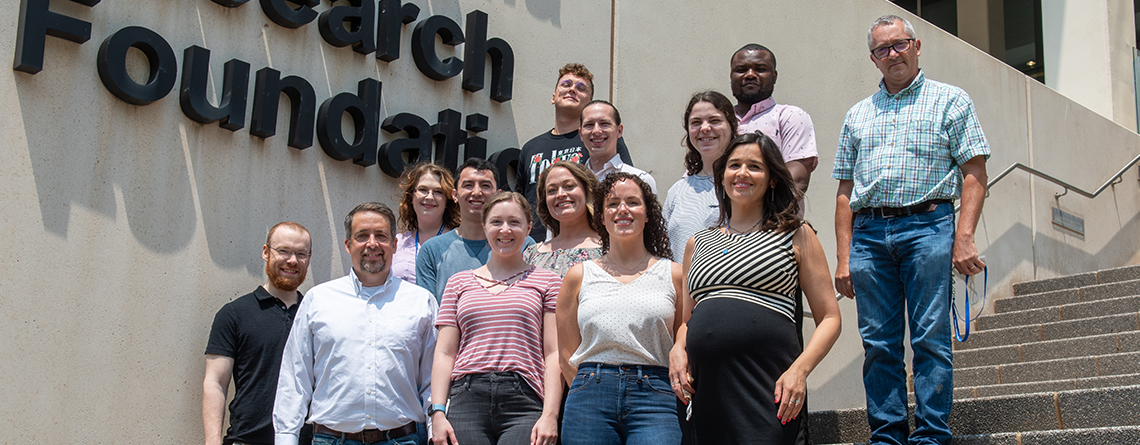New NIH grant to study mechanisms of eye aging
Drs. Chucair-Elliott and Freeman have received a new award from the National Eye Institute. Aging is the principal risk factor for age-related macular degeneration (AMD), a neurodegenerative disease characterized by the irreversible loss of vision. Atrophy of the retinal pigmented epithelium (RPE) layer is an AMD hallmark that precedes photoreceptor cell loss. However, the mechanisms underlying RPE impairment with aging and exacerbation by poor diet are unclear. Epigenetic processes (DNA modifications and chromatin accessibility) in the RPE may play a central mechanistic role in the pathogenesis and progression of AMD. These studies will examined changes in RPE mC/hmC and chromatin accessibility patterns with aging, RPE-specific differential changes in the translatome, and interrogate the potential of Western and ketogenic dietary patterns, in combination with impaired oxidative stress resolution pathways, to exacerbate or ameliorate changes in the RPE epigenome and gene expression profiles.
NIH Early Independence Award for Sarah Ocañas
The NIH Director’s Office has announced that Dr. Sarah Ocañas is one of only 14 Early Independence Award winners this year in the US. This prestigious award allows the most promising trainees to transition directly from graduate school to an independent faculty position https://commonfund.nih.gov/earlyindependence/awardrecipients. Sarah will be joining the Genes & Human Disease Program at OMRF and is the first winner of this award in Oklahoma.
Graduate Student Victor Ansere Wins Award
Victor Ansere in the Freeman Lab has received a National Institute on Aging F99/K00 award. This award mechanism supports promising junior investigators as the finish graduate work and for their post-doc. https://www.nia.nih.gov/research/training/f99-k00-transition-aging-research-predoctoral-students Victor is the first trainee at OMRF to receive one of these awards that will support him for up to the next 5 years of his work in plasma transfer and anti-aging therapies.

